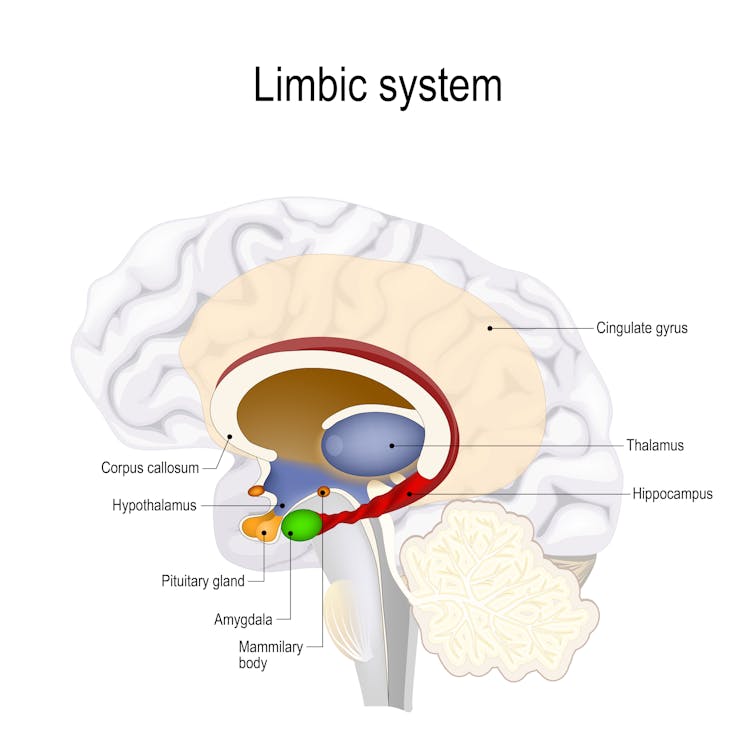By Alberta SJ van der Watt
What should I study? What do I want to be? How will I pay for my education? Who do I want to spend the rest of my life with? These are the life-changing decisions many young people face.
Emerging adulthood (between the ages of 18 and 25 years) is a critical stage in the life course, especially for identity development. Emerging adults are neither dependent adolescents nor independent adults. It is a time of exploration and frequent change.
And all this is happening while their brains are still developing, especially in areas associated with higher cognitive and emotional functioning. This functioning helps an individual plan, monitor and successfully execute their goals.
Amid all these important life choices, romantic relationship breakups can be devastating. After a breakup people may experience poorer academic performance, intrusive thoughts of the ex-partner and intense grief, and can even attempt suicide.
Yet, breakups among emerging adults are often dismissed or trivialised as a rite of passage. A trauma response is shrugged off as exaggerated or overblown.
Added to this, the psychiatric literature does not see breakups as potentially traumatic events.
As a mental health researcher with experience in romantic attachment and trauma research, I co-authored a paper exploring romantic relationship breakups as potentially traumatic events among university students. The research aimed to investigate whether their experiences fitted the official psychiatric diagnosis of post-traumatic stress.
Identifying potential trauma following a breakup could help young adults get appropriate treatment and support.
When the romantic attachment figure is no longer there
In several studies we tested the idea that breakups can be deemed a potentially traumatic event based on the Diagnostic and Statistical Manual 5th Edition (DSM-5) definition. Mental healthcare providers use the Diagnostic and Statistical Manual as a guide to diagnose patients with, for example, post-traumatic stress disorder.
A diagnosis of post-traumatic stress disorder is based on various criteria, including Criterion A: exposure to actual or threatened death, serious injury, or sexual violence. Criterion A acts as the “gatekeeper” to this diagnosis.
Asking the questions
Based on their self-reported responses on the Post-traumatic Stress Checklist for DSM-5, our participants fell into three groups:
Group one (breakup group): 886 participants who endorsed post-traumatic stress symptoms based on their most traumatic breakup.
Group two (trauma group): 592 participants who endorsed post-traumatic stress symptoms based on a DSM-5-defined traumatic event (for example physical and sexual assault).
Group three (control group): 544 participants who endorsed post-traumatic stress symptoms based on their most stressful experience (for example relocating homes or a parental divorce).
We found breakup participants, those in Group One, reported significantly more post-traumatic stress symptoms, such as flashbacks, recurring memories, and nightmares about their former partner, than both the other two groups.

Looking at the brain
After the questionnaire, a subset of students from each of the three groups completed brain scans so we could see which brain areas were activated in response to specific stimuli.
During the scans, they rated images as positive, negative, or neutral.
- 36 participants from Group One (breakup group), rated photos of their ex-partners
- 15 participants from Group Two (trauma group), who specifically indicated physical or sexual assault as their most traumatic event, rated photos of physical or sexual assault
- 28 participants from Group Three (control group) rated general negative images (such as children playing in polluted water). These photographs were part of the International Affective Picture system, widely used in studies of human emotion.
We analysed the brain activation (increased blood flow) of the amygdala and hippocampus within the temporal lobe. These regions of the brain are associated with post-traumatic stress disorder and form part of the fear-based limbic system that is part of our “fight or flight” system. They have also been linked to real and imagined romantic attachment rejection.
We found similar activation levels in the amygdala and hippocampus when breakup group participants rated images of their ex-partners to when trauma group participants rated images of physical and sexual assault.
Sex, religion, and other factors
Thirdly, we focused on the breakup participants only. We found that their emotional response to the breakup was influenced by:
- demographic characteristics such as sex, sexual orientation and religion. Specifically, participants with a minority sexual orientation and who reported not being religious reported higher levels of breakup distress.
- characteristics of the breakup such as the perceived closeness of the relationship and reasons for the breakup.
Moving forward
The combined results support our hypothesis that romantic breakups can be potentially traumatic events for emerging adults and may be experienced as life-threatening.
Validating experiences of breakups as potentially traumatic may cushion their negative impacts, encourage emerging adults to seek help, and promote mental health.
Mental healthcare providers and student counselling services should recognise the possible intensity of breakups and consider screening for post-traumatic stress symptoms following a breakup.
Trauma-focused treatment, such as prolonged exposure therapy, may help students, especially those who cannot avoid breakup-related cues such as seeing their former partners in class or on social media.
Since romantic breakups are not considered traumatic events within the psychiatric literature, our findings are controversial, and we do not claim that all breakups are necessarily traumatic.
More research must be done, especially with a more diverse set of students and a larger sample size for the brain scans.




